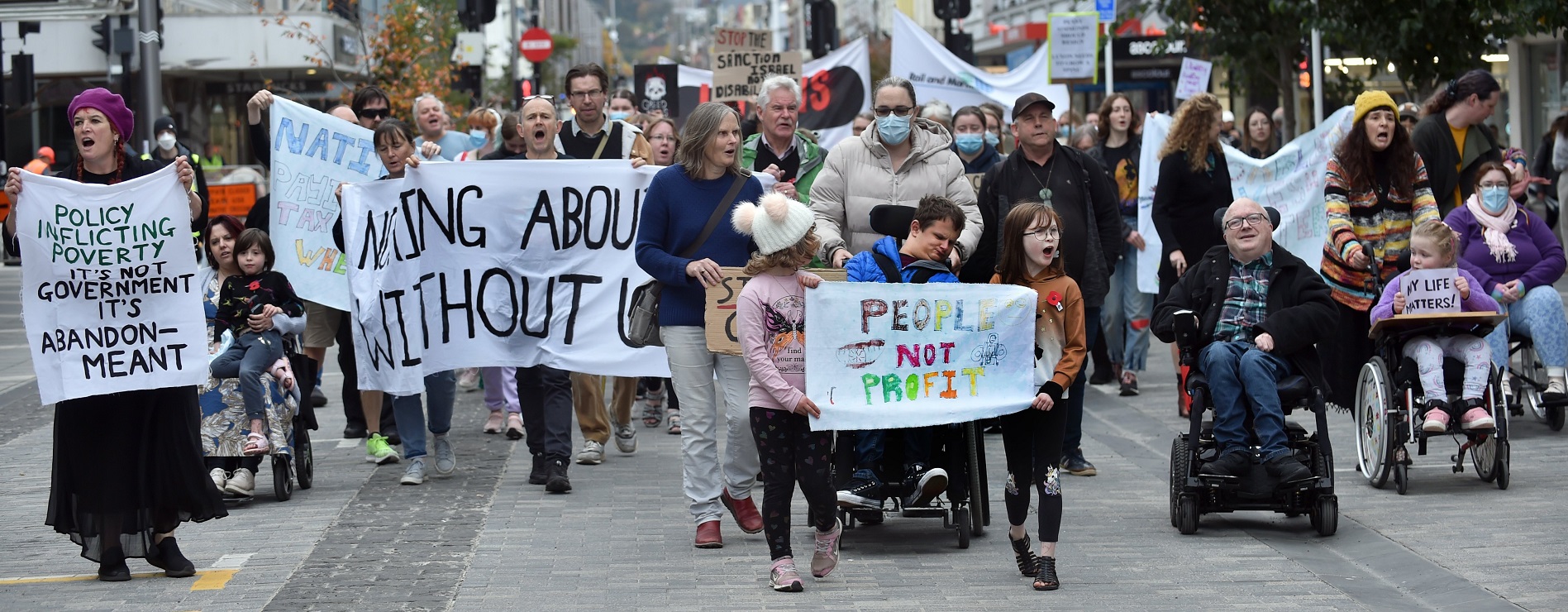
Cr Mandy Mayhem put up two notices of motion for the next council meeting.
One asked the council to write to new Minister for Disability Issues Louise Upston requesting changes made on March 18 to purchasing rules and equipment modifications be scrapped, and that consistent access be given to flexible disability support funding.
The other was asking the council to write to Minister of Local Government Simeon Brown about rates rebates.
Cr Mayhem said the government should increase the amount available for ratepayers to between $1000 and $1500 and lower the income abatement threshold to $25,000.
The existing maximum rebate is $750 and the income threshold is set at $30,100.
Cr Mayhem’s notice also asks the council to develop a remit about the rates rebate scheme for consideration at the next Local Government New Zealand annual meeting.
Both notices will be discussed by the council on Tuesday.
Invercargill MP Penny Simmonds was replaced this week in the disability portfolio after there had been calls for her sacking.
The Ministry for Disabled People Whaikaha unveiled changes on March 18 to purchasing rules for disabled people’s equipment and support services, causing angst and confusion.
These were announced through a Facebook post.
Ms Simmonds said last month the changes were needed because there used to be no flexibility for individualised funding but this was adjusted during the Covid-19 pandemic.
It was reported the budget had been overrun with more than $104million spent on purchasing items, and rules needed to be tightened.
Ms Simmonds said it was appropriate for funding to be spent on "equipment or services for disabled people rather than overseas travel or haircuts for their carers".
"To be clear, this is not a reduction in funding — it simply changes how the current funding can be used to ensure maximum benefit for the disabled person."
The ministry was improving its communication processes, she said.
The situation led to protest marches in Dunedin, including one last week.
Protest organiser Amy Taylor said at the time people with disabilities did not have a lot of autonomy, and flexibility had now been reduced.
"We shouldn’t be told by some bureaucrats in Wellington what we need," Dr Taylor said.
Several city councillors were present at the protests.
The rates rebate scheme is a government programme administered by councils for the Department of Internal Affairs.
It provided a discount on rates for low-income homeowners.
Retirement village residents can also apply.
The call for a more generous rates rebate scheme has come at a time of significant cost pressures for councils.
Many have proposed double-digit rates rises, as they grapple with high inflation and infrastructure deficits.
The Dunedin City Council has proposed a 17.5% rates rise — much of it because of Three Waters costs and implementation of an upgraded rubbish and recycling kerbside collection service.











